Goods & Services TAX
Goods & Services TAX
- Get Free Advisory by a CA
- Guidance on how to raise an invoice
- GST Registration in 3 days
- GST Return filing
- Get Free Advisory by a CA
- Guidance on how to raise an invoice
- GST Registration in 3 days
- GST Return filing
GST Registration - An Overview
GST or Goods and Services Tax was introduced by the Prime Minister of India in an attempt to regulate prices throughout the country and remove all state or central Govt. imposed indirect taxes on goods and services by initiating GST registration in India.
As per the new GST regulation, businesses whose turnover exceeds Rs 20 lakhs (10Lakhs for North East and hill states) is required to get their GST as a normal taxable person. This process is called the register for GST.
Apart from the other turnover bracket, there are certain cases where GST apply online is mandatory for individuals or entities engaging themselves in the supply of goods or services across the state to get new GST registration online. One can apply for online GST Registration either as a normal taxpayer or under GST composition scheme.
Documents Required for Income TAX Filing
The following documents are required for filing the income tax return:
- PAN Card
- Aadhaar Card
- Details of Bank Account
- Income Source Details
- Form 16 (that has been issued by the employer)
- e-filing profile on ITR e-filing portal
- Details of investment (if any)
- Details of loan (if any)
Benefits of Income TAX Return Filing

- Avail input Tax credit
- Interstatte Sales Without restriction
- limitited Compliances Imposed
- Less tax liability
- High working capital
- Avail input Tax Credit
- Inter-state supply without restriction
- Easy Registration on e-commerce website
- Competitive Advanages composed to another business
- Eliminates the cascading effect of the tax
- Higher threshold limit for registration
- Simple and easy online procedure
- Facility of Composition Scheme
- Simpile and easy online procedure
- Less number of compliances
Why BizOkay India?


Frequently Asked Questions
All businesses that are registered under GST are assigned with a unique Goods and Service Tax Identification Number or GSTIN.
If a business provider operates from more than in one state, then a separate GST is required for each state.
The term “Composition Scheme” denotes a GST scheme that can be opted by the small businesses having an Annual Turnover below Rs 1 crore and Rs 75 lakhs for special states.
All the Service Providers, Inter-state Sellers, E-commerce Sellers, Suppliers of non-taxable goods, and Manufacturers of Notified Goods are outside the domain of the GST Composition Scheme.
Any GST taxpayer whose business turnover is below Rs 1 crore can opt for the Composition Scheme. However, the limit of turnover for North East state has been decided on Rs 75 lakhs.
A reverse charge is a mechanism in which the liability of paying the GST tax is levied on the buyer, and not on the supplier.
When the goods and services are offered or supplied periodically, and the payments are also made on a timely basis, it is called a continuous supply under GST.
The term “Compliance Rating” denotes a rating which is given to all the registered taxpayer on their performance.
The rating is given for implementing and complying with all the provisions of the GST timely and properly.
The one who is supplying Agriculture Produce, NIL rated or exempt supplies, or supply under Reverse Charge are exempt from GST Online Registration.
Yes, a person can anytime get the voluntary registration under GST in accordance with subsection (3) of section 25.
In case of default, an officer can decide to cancel the GST Registration of an individual or business.
No, there is no such concept as the Central GST Registration in India. An entity having more than one branch will have to take separate state wise GSTIN for each branch.
Yes, an individual can cancel his/her GDT Registration when he/she has opted for voluntary cancellation of his/her GST Registration.
A Non-Resident Taxable Person is one who is a foreigner and occasionally wants to affect the taxable supplies from any state in India and for that, he needs a GST Registration.
Yes, there is a need to have DSC in the case of Public Limited Company, Limited Liability Partnership Firm, Private Limited Company, or OPC.
The advantages of the GST Composition Scheme are Reduced Tax Liability, No Need to Maintain Detailed Records, File Single Quarterly Return, Limited Compliances, Small Amount of Tax, and Provides Auxiliary Services up to Rs 5 lakhs.
The disadvantages of the GST Composition Scheme are No ITC, No Composition Tax charged on Invoice, and cannot issue Tax Invoice.
ARN or Application Reference Number is generated automatically after the submission of form and documents on the GST Portal.
HSN Code or Harmonised System of Nomenclature, is an internationally accepted Product Coding System. It is used to maintain Uniformity and Consistency in the Classification of Goods.
One can register for GST by visiting the official GST Portal.
There is no fee involved in the process of GST Registration. However, the process of document and identity verification may require some charge.
Any Goods or Services Provider who is earning an annual turnover above Rs 20 lakhs is required to register their business under the provision of the GST Act.
A Minimum of 3 days are required to acquire GST Number.
The term “Destination-based Tax” denotes the place where the goods or services are used.
The Goods and Services Tax or GST includes all the Indirect Taxes that were levied under the preceding Tax Regime in India.
As per the GST Act, a 28% tax slab, together with NCCD and Compensation Cess, is applicable to the Cigarettes and Smoke-less Tobacco.
In India, GST is proposed in 3 tiers, i.e., CGST, SGST, and IGST.
The GST Council in India has the sole authority to levy and administer GST in India.
Integrated Goods and Service Tax or IGST applies to all the goods and services that are supplied in various states other than the origin state.
The GST Tax Rates are decided mutually by the Central Government and respective State Government.
IGST or Integrated Goods and Service Tax, will apply on Imports.
IGST or Integrated Goods and Service Tax, will apply on Exports.
The GST or Goods and Service Tax Act came into force on 01.07.2017.
Yes, B2B transactions are covered under GST.
The term ITC or Input Tax Credit means the tax paid by the company on purchase to reduce the tax levied on sale.
